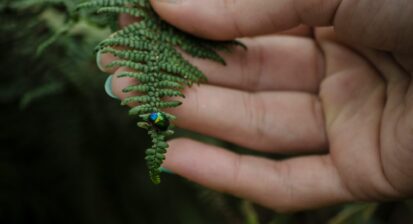AUTHOR’S CORNER
Urban trees:
our valuable cohabitants
22.09.2022
by Natasa Papangelou
SHARE
Cities are the most human-made of the human-made landscapes, yet trees make them more human-friendly.
As I’m writing this, I can spot the first yellowing leaves in the linden outside my window, making me look forward to the smell of rain, steaming cups of tea and fleece blankets on the sofa. I am now used to how much this tree spoils me. It’s always there to give me a resting place for my eyes when I finally raise them from the screen; to shade my window in the summer; and generously drop her leaves to make way for the scarcer daylight in winter. Crows come to rest on her branches in winter and robins chuckle all year long. The lime tree is my companion along the seasons and yet, until recently I didn’t even know her name – I wasn’t sure if she was a lime tree. What a shame after years of this close relationship.
Urban trees: at your service!
Ecologists and other researchers have a particular term for all the ways natural elements benefit humans: ecosystem services. Ecosystem services can benefit people directly, like when bees pollinate our edible crops and so basically provide us with food, or indirectly, like when a wetland buffers riparian water and prevents nearby towns from flooding.
Trees are champions of ecosystem services in general, and so are urban trees. First of all, urban trees are valuable allies against heat in cities (and this last summer showed us how much we need such allies): they offer shade and through evapotranspiration (releasing water droplets through the stomata on their leaves) they create low level clouds that reflect solar radiation and so provides cooling below. A model has shown that trees could lower the air temperature in Mexico City by 1 degree celsius thanks to evapotranspiration. Measurements in Australia showed that tree-lined streets were up to 2.1 degrees cooler on hot summer days. Researchers believe that trees may be the cheapest solution to regulate microclimate in cities.
Trees do not only absorb heat, they also absorb noise. Whether traffic or the neighbor’s trap music at midnight, they get absorbed, deflected or masked by the fluffy, soft body of the tree, instead of hitting a hard surface and reflecting right back at your face. And speaking of traffic, trees also filter out pollution from the air. This is because trees breathe reversely from humans: they take CO2 from the atmosphere and store it in their leaves, trunk, and the soil beneath and around them. In ecosystem services language, this is called carbon sequestration, and is considered especially important given the urgent need to contain global warming. Unfortunately, though, no matter how many trees we will plant globally, they will never be enough to sequester all the CO2 we are emitting and are in the orbit of emitting.
Trees and happiness
It comes as no surprise that trees are shown time and time again to have multiple benefits on human well-being: people that live closer to trees are less stressed, more happy, better equipped to deal with depression, and even less affected by crime.
Trees are wonderful creatures. They are some of our closest cohabitants and yet we know so little about them. Recent findings show that trees have their own form of intelligence and can communicate to each other through the Wood Wide Web (a network of fungi living in and with their roots), sending nutrients, information, and even warnings about pest attacks to each other. It seems to me like the least we can do is see them not just as part of the landscape, as mere decoration, but as our rightful co-habitants. The first step is to call them by their names.
Can you commit to finding out the name of your closest tree, if you don’t know it yet? That tree outside your window, or the one you always pass on your way to work, or the one you prefer to sit under when you go to the park? Mine’s is Linden.

RELATED ARTICLES

Holiday Wishes
Season greetings! Greek women in STEM wishes happy 2021!

Protecting nature: our path to a healthier future
Human and environment, cause-effect relationship?

Archive
Find all our past articles chronologically organized in our archive.
CONTACT US
____________
greekwomeninstem@gmail.com
Do you have ideas, questions, comments or special requests?
Would you like to highlight your research project or nominate a researcher that you would like to learn more about?
Please write to our email or fill out the form and hit “send”. We will be happy to talk with you!
[contact-form-7 id=”44″ title=”Contact form 1″]

